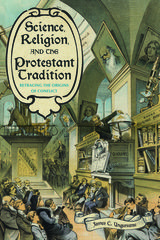302 scholarly books by University College London and 19
have author last names that start with H
302 scholarly books by University College London and 19
302 scholarly books by University College London
19 have author last names that start with H have author last names that start with H
19 have author last names that start with H have author last names that start with H
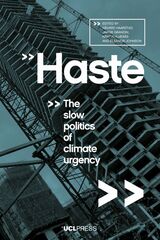
Haste
The Slow Politics of Climate Urgency
Håvard Haarstad
University College London, 2023
A powerful argument for not approaching climate change in a hurry, but with a slow politics of urgency.
It’s understandable that we tend to present climate change as something urgently requiring action. Every day we fail to act, the potential for catastrophe grows. But is that framing itself a problem? When we hurry, we make more mistakes. We overlook things. We get tunnel vision.
In Haste, a group of distinguished contributors makes the case for a slow politics of urgency. Rather than rushing and speeding up, he argues, the sustainable future is better served by our challenging of the dominant framings through which we understand time and change in society. While recognizing the need for certain types of urgency in climate politics, Haste directs attention to the different and alternative temporalities at play in climate and sustainability politics. Divided into short and accessible chapters, written by both established and emerging scholars from different disciplines, Haste tackles a major problem in contemporary climate change research and offers creative perspectives on pathways out of the climate emergency.
It’s understandable that we tend to present climate change as something urgently requiring action. Every day we fail to act, the potential for catastrophe grows. But is that framing itself a problem? When we hurry, we make more mistakes. We overlook things. We get tunnel vision.
In Haste, a group of distinguished contributors makes the case for a slow politics of urgency. Rather than rushing and speeding up, he argues, the sustainable future is better served by our challenging of the dominant framings through which we understand time and change in society. While recognizing the need for certain types of urgency in climate politics, Haste directs attention to the different and alternative temporalities at play in climate and sustainability politics. Divided into short and accessible chapters, written by both established and emerging scholars from different disciplines, Haste tackles a major problem in contemporary climate change research and offers creative perspectives on pathways out of the climate emergency.
[more]
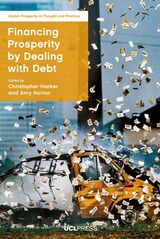
Financing Prosperity by Dealing with Debt
Christopher Harker
University College London, 2022
Transdisciplinary approaches to resolving problematic debt.
In an era when many of us depend on debt to survive but struggle with its consequences, Financing Prosperity by Dealing with Debt draws together current thinking on how to solve debt crises and promote prosperity. By profiling existing action by credit unions and community organizations, alongside bold proposals for the future, with contributions from artists, activists, and academics, the book shows how we can rethink the validity and inevitability of many contemporary forms of debt through organizing debt audits, promoting debt cancellation, and expanding member-owned co-operatives. The authors set out legal and political methods for changing the rules of the system to provide debt relief and reshape economies for more inclusive and sustainable flourishing. The book also profiles community-based actions that are changing the role of debt in economic, social, and political life—among them, participatory art projects, radical advice networks, and ways of financing feminist green transition. This volume moves beyond critique to present a wealth of concrete ways to tackle debt and forge the prosperous communities we want for the future, making it relevant to a broad audience of academics, practitioners, activists, and policymakers.
In an era when many of us depend on debt to survive but struggle with its consequences, Financing Prosperity by Dealing with Debt draws together current thinking on how to solve debt crises and promote prosperity. By profiling existing action by credit unions and community organizations, alongside bold proposals for the future, with contributions from artists, activists, and academics, the book shows how we can rethink the validity and inevitability of many contemporary forms of debt through organizing debt audits, promoting debt cancellation, and expanding member-owned co-operatives. The authors set out legal and political methods for changing the rules of the system to provide debt relief and reshape economies for more inclusive and sustainable flourishing. The book also profiles community-based actions that are changing the role of debt in economic, social, and political life—among them, participatory art projects, radical advice networks, and ways of financing feminist green transition. This volume moves beyond critique to present a wealth of concrete ways to tackle debt and forge the prosperous communities we want for the future, making it relevant to a broad audience of academics, practitioners, activists, and policymakers.
[more]
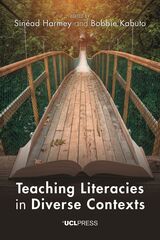
Teaching Literacies in Diverse Contexts
Sinéad Harmey
University College London, 2023
A practical guide to teaching literacy in all its varied contexts.
Literacy education doesn’t just happen in schools, with young children. It can take place in many locations, and at many different points in people’s lives. Literacy educators, therefore, need flexibility and a deep toolbox to meet their students’ diverse needs, regardless of whether they work in traditional school and college settings or in other environments with varied populations. Teaching Literacy in Diverse Contexts shows how practical experiences can be used in creative ways to support educator development for teaching literacy in a global context. Mentorship between a developing literacy educator and an experienced teacher educator is central to the book, and to the practical experiences in training or professional development that it focuses on. Chapters share the creative solutions discovered during mentorship that supported developing literacy educators to teach with authenticity in a number of contexts, including the adult learning sector, a rural community in Africa, and alongside parents of very sick children. Together, the chapters build a crucial resource for preparing a broad range of literacy educators to teach literacy in many contexts where policy on how best to teach reading and writing to diverse student bodies ebbs and flows.
Literacy education doesn’t just happen in schools, with young children. It can take place in many locations, and at many different points in people’s lives. Literacy educators, therefore, need flexibility and a deep toolbox to meet their students’ diverse needs, regardless of whether they work in traditional school and college settings or in other environments with varied populations. Teaching Literacy in Diverse Contexts shows how practical experiences can be used in creative ways to support educator development for teaching literacy in a global context. Mentorship between a developing literacy educator and an experienced teacher educator is central to the book, and to the practical experiences in training or professional development that it focuses on. Chapters share the creative solutions discovered during mentorship that supported developing literacy educators to teach with authenticity in a number of contexts, including the adult learning sector, a rural community in Africa, and alongside parents of very sick children. Together, the chapters build a crucial resource for preparing a broad range of literacy educators to teach literacy in many contexts where policy on how best to teach reading and writing to diverse student bodies ebbs and flows.
[more]

Critical Heritage Studies and the Futures of Europe
Rodney Harrison
University College London, 2023
This book applies heritage studies to the present and the future of Europe.
Cultural and natural heritage are central to ideas of what Europe and “the European project’” are. Heritage studies were prevalent in the emergence of nation-states in the eighteenth and nineteenth centuries, where they were used to justify differences over which border conflicts were fought. Later, the idea of a “common European heritage” provided a rationale for the development of the European Union. Now, the emergence of “new” populist nationalisms shows how the imagined past continues to play a role in cultural and social governance, while a series of interlinked social and ecological crises are changing the ways that heritage operates, with new discourses and ontologies emerging to reconfigure heritage for the circumstances of the present and the uncertainties of the future.
Cultural and natural heritage are central to ideas of what Europe and “the European project’” are. Heritage studies were prevalent in the emergence of nation-states in the eighteenth and nineteenth centuries, where they were used to justify differences over which border conflicts were fought. Later, the idea of a “common European heritage” provided a rationale for the development of the European Union. Now, the emergence of “new” populist nationalisms shows how the imagined past continues to play a role in cultural and social governance, while a series of interlinked social and ecological crises are changing the ways that heritage operates, with new discourses and ontologies emerging to reconfigure heritage for the circumstances of the present and the uncertainties of the future.
[more]
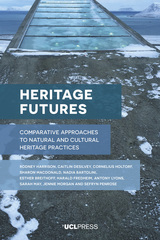
Heritage Futures
Comparative Approaches to Natural and Cultural Heritage Practices
Rodney Harrison
University College London, 2020
Preservation of natural and cultural heritage is often said to be something that is done for the future, or on behalf of future generations, but the precise relationship of such practices to the future is rarely reflected upon. Heritage Futures draws on research undertaken over four years by an interdisciplinary, international team of sixteen researchers and more than twenty-five partner organizations to explore the role of heritage and heritage-like practices in building future worlds. Engaging broad themes such as diversity, transformation, profusion and uncertainty, Heritage Futures aims to understand how a range of conservation and preservation practices across a number of countries assemble and resource different kinds of futures, and the possibilities that emerge from such collaborative research for alternative approaches to heritage in the Anthropocene. Case studies include the cryopreservation of endangered DNA in frozen zoos, nuclear waste management, seed biobanking, landscape rewilding, social history collecting, space messaging, endangered language documentation, built and natural heritage management, household keeping and discarding practices, and world heritage site management.
[more]
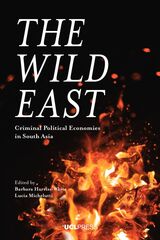
The Wild East
Criminal Political Economies in South Asia
Barbara Harriss-White
University College London, 2019
Through eleven case studies conducted across India, Pakistan, and Bangladesh, The Wild East examines a variety of economic sectors and business enterprises that regularly flout the law, such as coal, oil, real estate, and industrial labor. Bridging anthropology and political economy, the case studies explore how state regulative law is ignored or selectively manipulated and reveal the workings of regulated criminal economic systems in which politicians, police, judges, and bureaucrats are closely intertwined. Disrupting the existing literature on South Asia’s informal economy, The Wild East also suggests avenues for future research that will be of critical value to students and scholars of economics, anthropology, sociology, criminology, comparative politics, political science, and international relations.
[more]
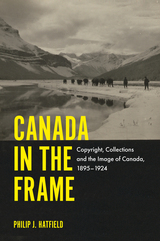
Canada in the Frame
Philip J. Hatfield
University College London, 2018
Canada in the Frame explores a photographic collection held at the British Library that offers a unique view of late-nineteenth-century and early twentieth-century Canada. The collection, which contains more than 4,500 images, taken between 1895 and 1923, covers a dynamic period in Canada’s national history and provides a variety of views of its landscapes, developing urban areas and peoples. Colonial Copyright Law was the driver by which these photographs were acquired; unmediated by curators, but rather by the eye of the photographer who created the image, they showcase a grassroots view of Canada during its early history as a confederation.
Canada in the Frame describes this little-known collection and includes over one hundred images from the collection. The author asks key questions about what it shows contemporary viewers of Canada and its photographic history, and about the peculiar view these photographs offer of a former part of the British Empire in a postcolonial age, viewed from the old "Heart of Empire." Case studies are included on subjects such as urban centers, railroads and migration, which analyze the complex ways in which photographers approached their subjects in the context of the relationship between Canada, the British Empire, and photography.
Canada in the Frame describes this little-known collection and includes over one hundred images from the collection. The author asks key questions about what it shows contemporary viewers of Canada and its photographic history, and about the peculiar view these photographs offer of a former part of the British Empire in a postcolonial age, viewed from the old "Heart of Empire." Case studies are included on subjects such as urban centers, railroads and migration, which analyze the complex ways in which photographers approached their subjects in the context of the relationship between Canada, the British Empire, and photography.
[more]
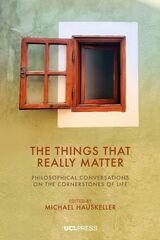
The Things That Really Matter
Philosophical Conversations on the Cornerstones of Life
Michael Hauskeller
University College London, 2022
A comprehensive exploration of the most fundamental aspects of human life through accessible conversations with contemporary philosophers.
While rooted in academic discourse, The Things That Really Matter comprehensively explores the most fundamental aspects of human life in approachable, non-technical language, adding fresh perspectives and new arguments and considerations that are designed to stimulate further debate. It features a series of conversations about the things in our life that we all, in one way or another, wrestle with if we are at all concerned about what kind of world we live in and what our role in it is: things like birth, age, and death, good and evil, the meaning of life, the nature of the self and the role the body plays for our identity, our gendered existence, love and faith, free will, beauty, and our experience of the sacred.
Situating abstract ideas in concrete experience, The Things That Really Matter encourages the reader to participate in an open-ended dialogue involving a variety of thinkers with different backgrounds and orientations. Lively and accessible, it shows thinking as a process and a collaborative endeavor that benefits from our talking to each other rather than against each other, featuring real conversations, where ideas are explored, tested, changed, and occasionally dropped. It is thinking in motion, personal yet universal.
While rooted in academic discourse, The Things That Really Matter comprehensively explores the most fundamental aspects of human life in approachable, non-technical language, adding fresh perspectives and new arguments and considerations that are designed to stimulate further debate. It features a series of conversations about the things in our life that we all, in one way or another, wrestle with if we are at all concerned about what kind of world we live in and what our role in it is: things like birth, age, and death, good and evil, the meaning of life, the nature of the self and the role the body plays for our identity, our gendered existence, love and faith, free will, beauty, and our experience of the sacred.
Situating abstract ideas in concrete experience, The Things That Really Matter encourages the reader to participate in an open-ended dialogue involving a variety of thinkers with different backgrounds and orientations. Lively and accessible, it shows thinking as a process and a collaborative endeavor that benefits from our talking to each other rather than against each other, featuring real conversations, where ideas are explored, tested, changed, and occasionally dropped. It is thinking in motion, personal yet universal.
[more]
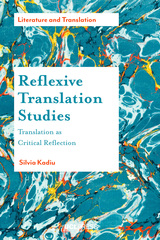
Re-Mapping Centre and Periphery
Asymmetrical Encounters in European and Global Contexts
Tessa Hauswedel
University College London, 2019
Historians often assume a one-directional transmission of knowledge and ideas, leading to the establishment of spatial hierarchies defined as centers and peripheries. In recent decades, transnational and global historians have contributed to a more inclusive understanding of intellectual and cultural exchanges that profoundly challenges the ways we draw our mental maps. Covering the early modern and modern periods, Re-Mapping Centre and Periphery investigates the asymmetrical and multidirectional structure of such encounters within Europe as well as in a global context. The international team of contributors demonstrates how, as products of human agency, center and periphery are conditioned by mutual dependencies. Rather than representing absolute categories of analysis, they are subjective constructions determined by a constantly changing discursive context. Through its analysis, the volume develops and implements a conceptual framework for remapping centers and peripheries, based on conceptual history and discourse history
[more]

History and the Climate Crisis
Environmental History in the Classroom
Kate Hawkey
University College London, 2023
A case for including an environmental focus in the secondary school history curriculum by locating its arguments within established historiographical and revisionist debates.
History education has a key contribution to make in developing a deeper understanding of the current environmental crisis, but its role is too often overlooked. When embedded in the school curriculum, environmental history adds crucial layers of knowledge to the learning from other subjects and can enable students to make their own informed contributions to one of the most pressing concerns of the twenty-first century.
History and the Climate Crisis provides much-needed environmental knowledge, an area that is new for most history teachers. The author considers the disciplinary and pedagogical challenges and demonstrates how including an environmental focus can strengthen students’ disciplinary knowledge. She also builds her argument through many examples and offers practical strategies for use in classrooms, including developed inquiries suitable for the secondary history curriculum. The book focuses on environmental history within a strong subject-bound curriculum and will be relevant to teachers, academics, and policymakers in the United Kingdom and internationally.
History education has a key contribution to make in developing a deeper understanding of the current environmental crisis, but its role is too often overlooked. When embedded in the school curriculum, environmental history adds crucial layers of knowledge to the learning from other subjects and can enable students to make their own informed contributions to one of the most pressing concerns of the twenty-first century.
History and the Climate Crisis provides much-needed environmental knowledge, an area that is new for most history teachers. The author considers the disciplinary and pedagogical challenges and demonstrates how including an environmental focus can strengthen students’ disciplinary knowledge. She also builds her argument through many examples and offers practical strategies for use in classrooms, including developed inquiries suitable for the secondary history curriculum. The book focuses on environmental history within a strong subject-bound curriculum and will be relevant to teachers, academics, and policymakers in the United Kingdom and internationally.
[more]

Ageing with Smartphones in Uganda
Togetherness in the Dotcom Age
Charlotte Hawkins
University College London, 2023
Examines the impact of smartphones and mobile phones on older people’s health and everyday lives as part of the global Anthropology of Smartphones and Smart Ageing project.
Ageing with Smartphones in Uganda is based on a sixteen-month ethnography about experiences of aging in a neighborhood in central Kampala, Uganda. Taking a convivial approach, which celebrates multiple ways of knowing about social life, Charlotte Hawkins draws from these expressions about cooperative morality and modernity to consider the everyday mitigation of profound social change. “Dotcom” is understood to encompass everything from the influence of information and communications technologies to urban migration and lifestyles in the city to shifts in ways of knowing and relating. At the same time, dotcom tools such as mobile phones and smartphones facilitate elder care through, for example, regular mobile money remittances.
This book explores how dotcom relates to older people’s health, their care norms, their social standing, their values of respect and relatedness, and their intergenerational relationships—both political and personal. It also re-frames the youth-centricity of research on the city and work, new media and technology, and politics and service provision in Uganda. Through ethnographic consideration of everyday life and self-formation in this context, this monograph seeks to contribute to an ever-incomplete understanding of how we relate to each other and to the world around us.
Ageing with Smartphones in Uganda is based on a sixteen-month ethnography about experiences of aging in a neighborhood in central Kampala, Uganda. Taking a convivial approach, which celebrates multiple ways of knowing about social life, Charlotte Hawkins draws from these expressions about cooperative morality and modernity to consider the everyday mitigation of profound social change. “Dotcom” is understood to encompass everything from the influence of information and communications technologies to urban migration and lifestyles in the city to shifts in ways of knowing and relating. At the same time, dotcom tools such as mobile phones and smartphones facilitate elder care through, for example, regular mobile money remittances.
This book explores how dotcom relates to older people’s health, their care norms, their social standing, their values of respect and relatedness, and their intergenerational relationships—both political and personal. It also re-frames the youth-centricity of research on the city and work, new media and technology, and politics and service provision in Uganda. Through ethnographic consideration of everyday life and self-formation in this context, this monograph seeks to contribute to an ever-incomplete understanding of how we relate to each other and to the world around us.
[more]
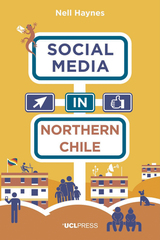
Social Media in Northern Chile
Posting the Extraordinarily Ordinary
Nell Haynes
University College London, 2016
Based on 15 months of ethnographic research in the city of Alto Hospicio in northern Chile, this book describes how the residents use social media, and the consequences of this use in their daily lives. Nell Haynes argues that social media is a place where Alto Hospicio’s residents – or Hospiceños – express their feelings of marginalisation that result from living in city far from the national capital, and with a notoriously low quality of life compared to other urban areas in Chile. In actively distancing themselves from residents in cities such as Santiago, Hospiceños identify as marginalised citizens, and express a new kind of social norm. Yet Haynes finds that by contrasting their own lived experiences with those of people in metropolitan areas, Hospiceños are strengthening their own sense of community and the sense of normativity that shapes their daily lives. This exciting conclusion is illustrated by the range of social media posts about personal relationships, politics and national citizenship, particularly on Facebook.
[more]
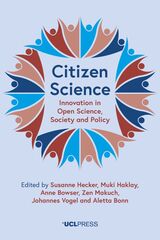
Citizen Science
Innovation in Open Science, Society and Policy
Susanne Hecker
University College London, 2018
Citizen science, the active participation of the public in scientific research projects, is a rapidly expanding field in open science and open innovation. It provides an integrated model of public knowledge production and engagement with science. As a growing worldwide phenomenon, it is invigorated by evolving new technologies that connect people easily and effectively with the scientific community. Catalyzed by citizens’ wishes to be actively involved in scientific processes, as a result of recent societal trends, it also offers contributions to the rise in tertiary education. In addition, citizen science provides a valuable tool for citizens to play a more active role in sustainable development.
This book identifies and explains the role of citizen science within innovation in science and society, and as a vibrant and productive science-policy interface. The scope of this volume is global, geared towards identifying solutions and lessons to be applied across science, practice and policy. The chapters consider the role of citizen science in the context of the wider agenda of open science and open innovation and discuss progress towards responsible research and innovation, two of the most critical aspects of science today.
This book identifies and explains the role of citizen science within innovation in science and society, and as a vibrant and productive science-policy interface. The scope of this volume is global, geared towards identifying solutions and lessons to be applied across science, practice and policy. The chapters consider the role of citizen science in the context of the wider agenda of open science and open innovation and discuss progress towards responsible research and innovation, two of the most critical aspects of science today.
[more]
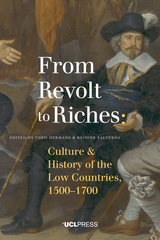
From Revolt to Riches
Culture and History of the Low Countries, 1500–1700
Theo Hermans
University College London, 2017
This collection investigates the culture and history of the Low Countries in the 16th and 17th centuries from both international and interdisciplinary perspectives. The period was one of extraordinary upheaval and change, as the combined impact of Renaissance, Reformation and Revolt resulted in the radically new conditions – political, economic and intellectual – of the Dutch Republic in its Golden Age. While many aspects of this rich and nuanced era have been studied before, the emphasis of this volume is on a series of interactions and interrelations: between communities and their varying but often cognate languages; between different but overlapping spheres of human activity; between culture and history. The chapters are written by historians, linguists, bibliographers, art historians and literary scholars based in the Netherlands, Belgium, Great Britain and the United States. In continually crossing disciplinary, linguistic and national boundaries, while keeping the culture and history of the Low Countries in the Renaissance and Golden Age in focus, this book opens up new and often surprising perspectives on a region all the more intriguing for the very complexity of its entanglements.
[more]
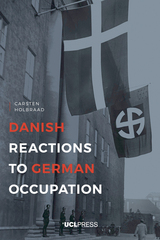
Danish Reactions to German Occupation
History and Historiography
Carsten Holbraad
University College London, 2017
For five years during World War II, Denmark was occupied by Germany. While the Danish reaction to this period of its history has been extensively discussed in Danish-language publications, it has not until now received a thorough treatment in English. Set in the context of modern Danish foreign relations, and tracing the country’s responses to successive crises and wars in the region, Danish Reactions to German Occupation brings a full overview of the occupation to an English-speaking audience. Holbraad carefully dissects the motivations and ideologies driving conduct during the occupation, and his authoritative coverage of the preceding century provides a crucial link to understanding the forces behind Danish foreign policy divisions. Analysing the conduct of a traumatised and strategically exposed small state bordering on an aggressive great power, the book traces a development from reluctant cooperation to active resistance. In doing so, Holbraad surveys and examines the subsequent, and not yet quite finished, debate among Danish historians about this contested period, which takes place between those siding with the resistance and those more inclined to justify limited cooperation with the occupiers – and who sometimes even condone various acts of collaboration.
[more]
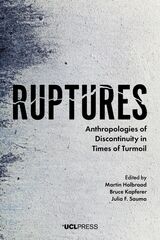
Ruptures
Anthropologies of Discontinuity in Times of Turmoil
Martin Holbraad
University College London, 2019
A “rupture” is a radical and often forceful discontinuity, an active ingredient of a world in turmoil, lying at the heart of some of the most defining experiences of our time, including the rise of populist politics and the corollary impulse towards protest and revolutionary change.
With Ruptures, editors Martin Holbraad, Bruce Kapferer, and Julia F. Sauma have brought together leading and emerging international anthropologists to explore the concept of rupture in select ethnographic and historical contexts. Among the contributions are chapters that look at images of the guillotine in the French Revolution, reactions to Trump’s election in the United States, the motivations of young Danes who join ISIS in Syria, “butterfly effect” activism among environmental anarchists in northern Europe, the experiences of political trauma and its “repair” through privately sponsored museums of Mao’s revolution in China, people’s experience of the devastating 2001 earthquake in Gujarat; the rupture of Protestant faith among Danish nationalist theologians, and the attempt to invent ex nihilo an alphabet for use in Christian prophetic movements in Congo and Angola.
With Ruptures, editors Martin Holbraad, Bruce Kapferer, and Julia F. Sauma have brought together leading and emerging international anthropologists to explore the concept of rupture in select ethnographic and historical contexts. Among the contributions are chapters that look at images of the guillotine in the French Revolution, reactions to Trump’s election in the United States, the motivations of young Danes who join ISIS in Syria, “butterfly effect” activism among environmental anarchists in northern Europe, the experiences of political trauma and its “repair” through privately sponsored museums of Mao’s revolution in China, people’s experience of the devastating 2001 earthquake in Gujarat; the rupture of Protestant faith among Danish nationalist theologians, and the attempt to invent ex nihilo an alphabet for use in Christian prophetic movements in Congo and Angola.
[more]
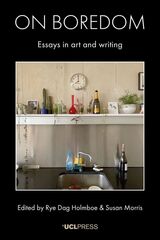
On Boredom
Essays in Art and Writing
Rye Dag Holmboe
University College London, 2021
An idiosyncratic volume featuring artwork and essays on the history of boredom.
What do we mean when we say that we are bored? Contributors to this volume, which include artists, art historians, psychoanalysts, and a novelist, examine boredom in its manifold and uncertain reality. Each part of the book takes up a crucial moment in the history of boredom and presents it in a new light, taking the reader from the trials of the consulting room to the experience of hysteria in the nineteenth century. The book pays particular attention to boredom’s relationship with the sudden and rapid advances in technology that have occurred in recent decades, specifically technologies of communication, surveillance, and automation. On Boredom is idiosyncratic for its combination of image and text, and the artworks included in its pages—featuring Mathew Hale, Martin Creed, and Susan Morris—help turn this volume into a material expression of boredom itself. It will appeal to readers in the fields of art history, literature, cultural studies, and visual culture.
What do we mean when we say that we are bored? Contributors to this volume, which include artists, art historians, psychoanalysts, and a novelist, examine boredom in its manifold and uncertain reality. Each part of the book takes up a crucial moment in the history of boredom and presents it in a new light, taking the reader from the trials of the consulting room to the experience of hysteria in the nineteenth century. The book pays particular attention to boredom’s relationship with the sudden and rapid advances in technology that have occurred in recent decades, specifically technologies of communication, surveillance, and automation. On Boredom is idiosyncratic for its combination of image and text, and the artworks included in its pages—featuring Mathew Hale, Martin Creed, and Susan Morris—help turn this volume into a material expression of boredom itself. It will appeal to readers in the fields of art history, literature, cultural studies, and visual culture.
[more]
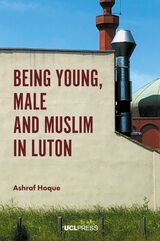
Being Young, Male and Muslim in Luton
Ashraf Hoque
University College London, 2018
What is it like to be a young Muslim man in the wake of the 2005 London bombings? What impact do political factors have on the multifaceted identities of young Muslim men?
Drawn from the author’s ethnographic research of British-born Muslim men in the English town of Luton, Being Young, Muslim and Male in Luton explores the everyday lives of young men and, focusing on how their identity as Muslims has shaped the way they interact with each other, the local community, and the wider world. Through a study of religious values, the pressures of masculinity, the complexities of family and social life, and attitudes towards work and leisure, Ashraf Hoque argues that young Muslims in Luton are subverting what it means to be “British” by consciously prioritizing and rearticulating their “Muslim identities” in novel and dynamic ways that suit their experiences. Employing rich interviews and extensive participant observation, Hoque paints a detailed picture of young Muslims living in a town consistently associated in the popular media with terrorist activity and as a hotbed for radicalization. He challenges widely held assumptions and gives voice to an emerging generation of Muslims who view Britain as their home and are very much invested in the long-term future of the country and their permanent place within it.
Drawn from the author’s ethnographic research of British-born Muslim men in the English town of Luton, Being Young, Muslim and Male in Luton explores the everyday lives of young men and, focusing on how their identity as Muslims has shaped the way they interact with each other, the local community, and the wider world. Through a study of religious values, the pressures of masculinity, the complexities of family and social life, and attitudes towards work and leisure, Ashraf Hoque argues that young Muslims in Luton are subverting what it means to be “British” by consciously prioritizing and rearticulating their “Muslim identities” in novel and dynamic ways that suit their experiences. Employing rich interviews and extensive participant observation, Hoque paints a detailed picture of young Muslims living in a town consistently associated in the popular media with terrorist activity and as a hotbed for radicalization. He challenges widely held assumptions and gives voice to an emerging generation of Muslims who view Britain as their home and are very much invested in the long-term future of the country and their permanent place within it.
[more]
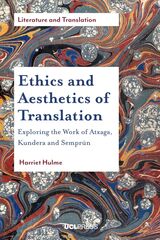
Ethics and Aesthetics of Translation
Exploring the Works of Atxaga, Kundera and Semprún
Harriet Hulme
University College London, 2018
Ethics and Aesthetics of Translation engages with translation, in both theory and practice, as part of an interrogation of ethical as well as political thought in the work of three bilingual European authors: Bernardo Atxaga, Milan Kundera, and Jorge Semprún. In approaching the work of these authors, the book draws upon the approaches to translation offered by Benjamin, Derrida, Ricoeur, and Deleuze to highlight a broad set of ethical questions, focused upon the limitations of the monolingual and the democratic possibilities of linguistic plurality; upon our innate desire to translate difference into similarity; and upon the ways in which translation responds to the challenges of individual and collective remembrance. Each chapter explores these interlingual but also intercultural, interrelational, and interdisciplinary issues, mapping a journey of translation that begins in the impact of translation upon the work of each author, continues into moments of linguistic translation, untranslatability and mistranslation within their texts and ultimately becomes an exploration of social, political and affective untranslatability. In these journeys, the creative and critical potential of translation emerges as a potent, often violent, but always illuminating, vision of the possibilities of differentiation and connection, generation and memory, in temporal, linguistic, cultural and political terms.
[more]
READERS
Browse our collection.
PUBLISHERS
See BiblioVault's publisher services.
STUDENT SERVICES
Files for college accessibility offices.
UChicago Accessibility Resources
home | accessibility | search | about | contact us
BiblioVault ® 2001 - 2024
The University of Chicago Press




